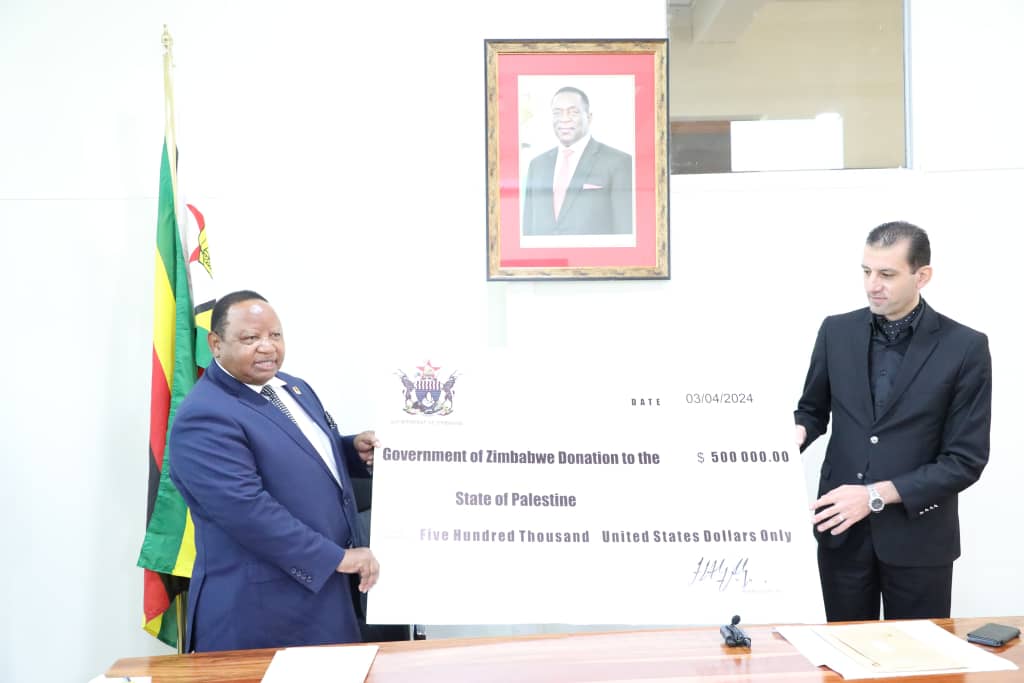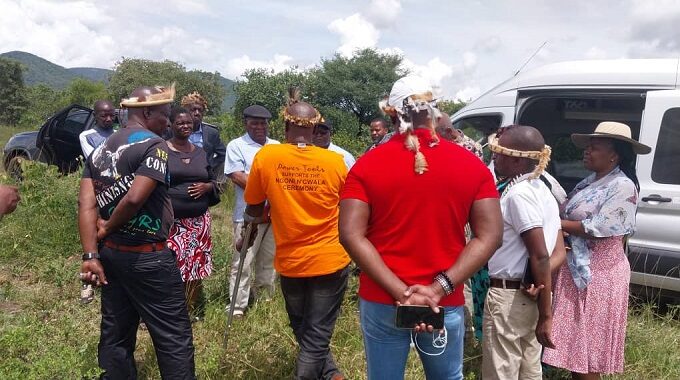ZIMBABWEAN President Robert Mugabe’s ruling party is in the grip of a generational split over whether to improve relations with international financial institutions in a bid to rescue the battered economy, according to about a dozen senior party officials.
The old guard including Vice President Emmerson Mnangagwa, 69, and Finance Minister Patrick Chinamasa wants better relations with the International Monetary Fund to rebuild an economy blessed with diamond deposits, the world’s second-biggest reserves of platinum and chrome, after South Africa, and fertile farm land.
Younger leaders see better ties with the west as a threat to their chances of making money because legislation requiring the sale of assets to black investors would likely be softened, the people said.
With President Robert Mugabe, 91, increasingly unable to direct policy due to his frailty, party leaders are feuding over Chinamasa’s references to weakening legislation requiring that all businesses should be 51% black-owned because it has driven away investors, the people said.
They asked not to be identified because the position of the Zimbabwe African National Union-Patriotic Front party is that there are no divisions.
Zimbabwe Loses
“The Zanu-PF factional wars are threatening this relationship-reconstruction exercise pursued by Chinamasa and there is only one loser: Zimbabwe,” said Alex Magaisa, a constitutional lawyer who lectures at the University of Kent and advises investors in London on ownership laws in Zimbabwe.
Zimbabwe had had its voting rights at the IMF revoked in 2003 because of arrears on payments and while those were restored in 2010 it still cannot borrow. It’s now planning to clear arrears of US$110 million to the IMF, US$1,15 billion to the World Bank and US$601 million to the African Development Bank by April, Chinamasa said in an Oct. 9 statement.
That would allow the country to resume borrowing from the lenders to finance infrastructure projects needed to boost power supply and repair neglected roads and water pipes. In total it has about US$10 billion in debt.
Zimbabwe is wracked by drought, deflation and unemployment of 95% and is isolated from lenders and western donors because of disputes over forced seizures of white-owned farms and elections marred by violence and irregularities.
Economic growth is expected to be 1,5% this year and 2,7% in 2016, Chinamasa said this month. The economy is half the size it was in 2000.
Any change in current legislation that’s compelled companies including Impala Platinum Holdings Ltd. and Anglo American Platinum Ltd. to hand control to black investors would threaten the financial fortunes of younger government leaders.
“We can’t expect to change the leadership of President Mugabe and we’re going to congress to discuss economic revival, not any leadership change,” Zanu-PF spokesman Simon Khaya Moyo said when asked about party splits in a phone interview from Harare, the capital.
“We elected President Mugabe to lead us into the 2018 elections. I don’t know the factionalism you’re referring to. We have one leader.”
The dispute has pitted older leaders like Chinamasa, 68, and Mnangagwa against officials such as Youth, Indigenisation and Economic Empowerment Minister Patrick Zhuwao, 48, and local government minister Saviour Kasukuwere, 45.
The younger leaders are allied with the president’s wife Grace Mugabe, 50, who in December was appointed to Zanu-PF’s politburo after she took over as head of the women’s wing of the party.
“We heard some top politicians saying we will re-look at indigenisation. This means they’re saying to myself and all of you that you should go home and sit,” Zhuwao, who is also Mugabe’s nephew, told government youth ministry officers in the eastern city of Mutare.
“Those who are talking about foreign direct investment are precisely saying we should go home.”
Revolutionary Aims
Chinamasa and his allies are working against the aims of the party’s revolution by undermining efforts to disempower whites and foreigners for the benefit of black Zimbabweans, two of the senior party members said. Control of the economy needs to be handed to black Zimbabweans, with or without IMF approval, they said.
Seven calls to Chinamasa’s mobile phone and office weren’t answered when Bloomberg News sought his comment.
Chinamasa is trying to “mend bridges,” Magaisa said. He, and allies like Mnangagwa, are “really looking at a post-Mugabe era by re-building relations with the west.”
The faction that includes Zhuwao and Kasukuwere believes that the IMF wants to slim down the civil service.
Chinamasa was forced to back down after Mugabe countermanded a Finance Ministry order to withhold bonuses in September.
Mugabe also halted plans to cut back on a civil service wage bill that swallows more than 80% of Zimbabwe’s revenue by saying state workers wouldn’t be fired.
The finance minister’s opponents are “not presenting any viable alternative to what Chinamasa is trying to do,” Magaisa said. “The argument that Zimbabwe can go it alone is empty, futile and not supported by facts.”-Bloomberg






